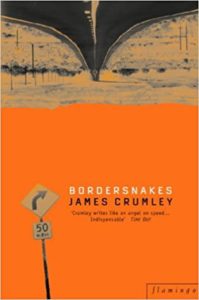

Lost worlds and ports of call

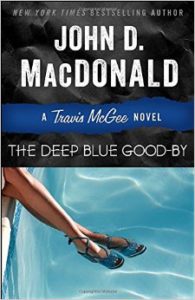
Recently I picked up six volumes of the collected stories of Paul Anderson, published by NESFA press between 2009 and 2014. Since the last book appeared over two years ago, I’m not sure if there are future volumes planned.
Each book is hefty, full of classic short stories, novellas, occasional poetry, cover art by Bob Eccleton, John Picacio and introductions by noted writers in the SF field. Reading through all the stories could take a year or more, as each book is so dense and rich. I’ll have more to say as I read the books. For now I’ll just enjoy the covers.
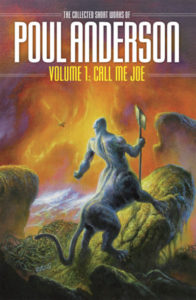

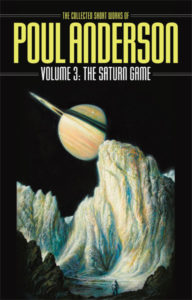
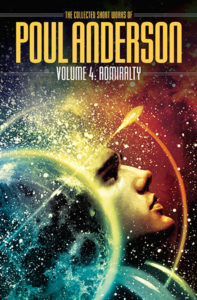
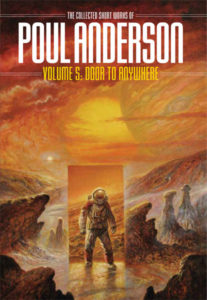
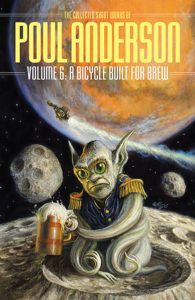
From 1965 to 1975 appeared ten novels by Maj Sjöwall and Per Wahlöö, collectively titled The Story of a Crime. The protagonist, police detective Martin Beck, links all the novels, though he by no means acts alone.
It took me a couple of years to find and read all ten books. I think I read them more or less in order, although I read them as I bought them. I intend to re-read them in proper sequence.
These ten novels are hailed by many writers and critics are essential to anyone interested in Scandinavian crime fiction. Some aspects are timeless, some horribly dated. They’re not the best books I’ve read, but I can see how they influenced other writers.
Along with the four Henning Mankell books pictured here, all with a curiously similar cover design, I’ve bought four other Mankell novels, six Per Wahloo (and Maj Sjowall) novels, two Asa Larrson novels, five by Jo Nesbø, a couple of P.D. James books (one fiction, one non-fiction), a Patricia Highsmith classic, and a detective book by the 2014 Nobel Literature Prize winner: the French writer, Patrick Modiano.
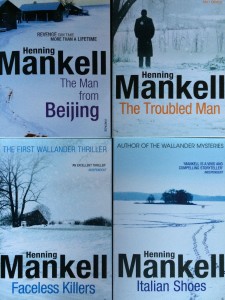
Scandinavian crime landscapes
I haven’t read all the books yet. Nesbø has a cinematic and kinetic style, steeped in Hollywood. His anti-hero is dark, bitter, unlikeable. Mankell is more sedate, his main character morose but not as bitter and self-destructive as Nesbø’s Harry Hole. I’m still reading Asa Larrson, and don’t yet have a feel for her main characters yet. I know the Highsmith novel will annoy me, because the main character is a conman, a crook, a swindler. I haven’t read James in well over a decade, but I used to like her books. Wahloo and Sjowall come highly recommended, and I look forward to reading their books.
Today I received in the mail a copy of Alongside Night: The Graphic Novel. Based on a screenplay of J. Neil Schulman’s 1979 debut novel, and updated for the present age, this new version Alongside Night also has finished production as a movie. The trailer is available on IMDB.com, and stars some big names such as Kevin Sorbo, Tim Russ, and Garrett Wang (the latter two from Star Trek: Voyager). The graphic novel appear adapted from the screenplay rather than the original novel, which makes it shorter and changes some of the settings but no major plot elements.
Just finished Ramez Naam’s sequel to his superb 2012 novel Nexus, called Crux. Quite a breathtaking book in terms of near future ideas and non-stop action. Picking up a few months after the events in Nexus, the sequel rushes down the same paths, with many old characters plus a few new ones. Naam has narrative talent, and clearly a third book will follow.
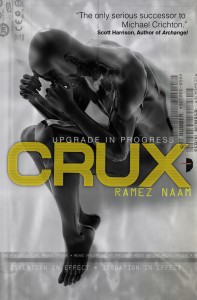
Over at Wired, and interview with Margaret Atwood. Also, some notes from a panel on political fiction, with contributions from other writers.
© 2025 Anders Monsen
Theme by Anders Noren — Up ↑